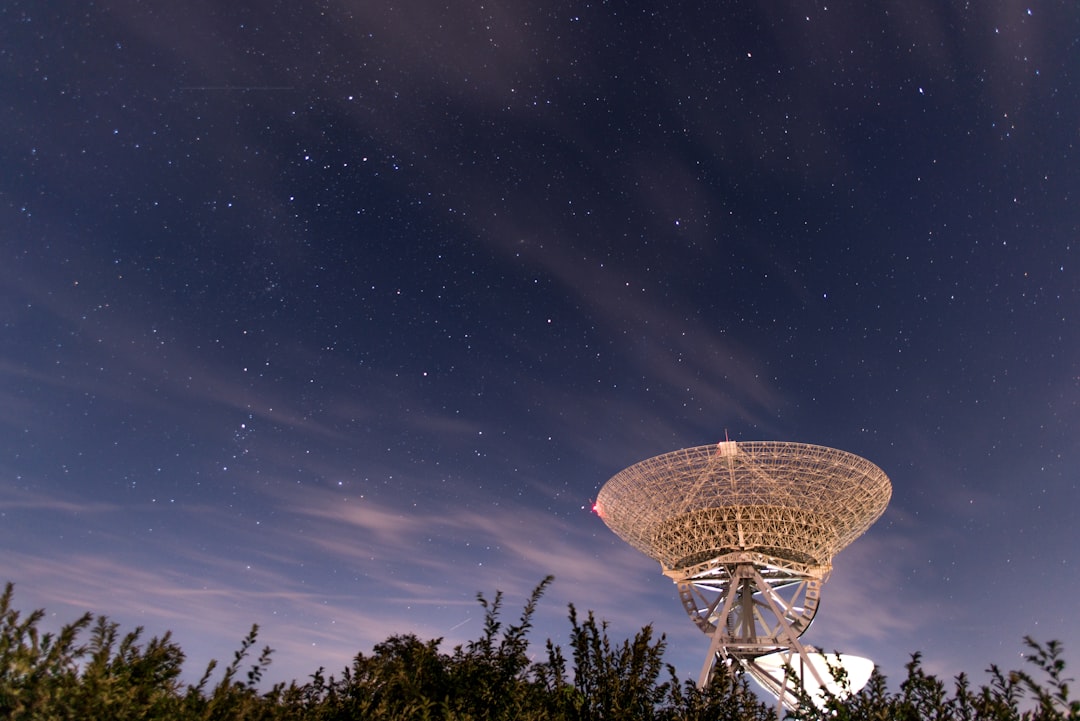Astronomy is fundamentally the study of everything outside of the Earth and its climate; this includes the stars, planets, and galaxies that make up our universe. The exploration of astronomy is the most tested of the common sciences. It is the core science where you can ponder and watch material science at work all through the entire universe, but then not physically have the option to contact what is being considered. Strikingly, it was the creation of the telescope that empowered astronomy to form into a cutting-edge science.
There are two principal regions of astronomy:
Observational astronomers: gather information from satellites and shuttle utilizing radio and optical telescopes, create programming, decipher pictures caught by satellites, and investigate information.
Hypothetical astronomers: make complex PC models to create speculations on the physical procedures happening in space, investigate the aftereffects of past perceptions to grow new forecasts.
The principle devices utilized by astronomers are:
• Telescopes - used to accumulate light outflows
• Spectrographs - used to separate light into a range to tell the temperature, piece, and speed of room objects
• Cameras - are associated with telescopes and used to accumulate pictures
• Shuttles - cameras and telescopes are put locally available to gather pictures of room objects
• PCs - used to investigate information got from telescopes and rocket
Astronomy is the study of the stars, planets, and galaxies that make up our universe. It very well may be a difficult and rewarding career that could prompt stunning revelations about the manner in which space works. On the off chance that you have an enthusiasm for the night sky, you can make an interpretation of that into a career as a space expert by getting decent evaluations in physics and arithmetic. You should then build up the abilities and experience important to become a decent expert situation as a cosmologist at a laboratory or even a space office like NASA.
The initial step to picking a career is to ensure you are really ready to focus on narrowing the profession. You would prefer not to burn through your time accomplishing something you would prefer not to do.
Astronomers will, in general, be overwhelmingly analytical people, which imply that they are very curious and inquisitive individuals that frequently prefer to invest energy along with their considerations. They likewise will, in general, be imaginative, implying that they are inventive and unique and function admirably in a setting that takes into account self-articulation.
To turn into an astronomer you, for the most part, need to finish a certificate in science at college with a major in astronomy, physics or astronomy (ideally at respects level), trailed by a postgraduate degree in astronomy. To get into the degree courses you, for the most part, need to pick up your Senior Secondary Certificate of Education. Essential subjects, or expected information, in at least one of English, science, earth and ecological science, mathematics and physics are regularly required. Section to postgraduate courses typically requires finishing proper four-year college education. Colleges have various essentials and some have adaptable section prerequisites or offer outer study.
Astronomer history
From 1600 to 1800, there was a rise in the popularity of printed star maps that portrayed the groups of stars as indicated by old legends and stories. In Europe, where the nature of divine charts was unequaled, old-style Greek customs won, and the groups of stars were given metaphorical visual portrayals that comprised of saints and courageous women and imagined creatures. These pictures were set as frameworks that enabled the positions of the stars to be mapped in the sky; thus creating a night sky map. They shaped the background for forecasts of the area of the planets and other celestial bodies. Yet, there was the second category of images that was found in these divine chart books. These pictures comprised of charts of great bodies or of the whole nearby planetary group that reflected both contemporary and antiquated cosmological frameworks.
Space experts isolate these frameworks into networks in order that they can be more effectively interpreted. They are used to distinguish between and locate celestial bodies and galactic items, for example, stars, nebulae, and galaxies. Note that a star diagram contrasts from a galactic index, which is a posting or organization of cosmic articles for a specific reason. Devices using a star outline incorporate the astrolabe and plan sphere.
Star maps still haven’t gone out of fashion and are, in fact, making a resurgence in popularity, as we can testify at UnderLuckyStars. Alternatively look at the numbers who Google star map, personalized star map, star date and so on. You might have thought “birthday star” a nice compliment about some but actually they are probably searching for a night sky map to capture their lucky star, their birthday, the day they were born and more. It’s amazing to think this ancient tradition is alive and well today. The night sky is a mysterious and unifying portrait we all share!
Is an astronomy degree necessary?
You'll definitely require a degree. Those working in the field are typically taught to the Ph.D. level and the initial step is to have a Bachelor’s degree. Be that as it may, you don't require a college degree in astronomy.
There are various undergrad subjects significant to astronomy. 'The most relevant degree is a physics-based one,' says Dr. Kerins, 'yet it's ideal to pick a degree which lines up with your likings.' You could choose an astronomy degree, a course in mathematics or in case you're keen on planets and the moon, a geography degree.
In case you're sure of your enthusiasm for astronomy and you'd prefer to consider a progressively explicit program, there is an expanding number of astronomy degrees on offer at a range of institutions.
For instance, on the three-year Physics with Astronomy BSc program at Cardiff University in Wales, you'll work close by researchers at the front line of galactic research. You'll contemplate center physics and astronomy modules including 'Mechanics and matter', 'Planet Earth', 'Initial quantum mechanics', 'Watching the universe' and 'Nuclear and atomic physics.' You'll need AAB/ABB at A-level including mathematics and physics, to pick up section to the course.
At the Birkbeck University of London, you can read for a BSc in Planetary Science with Astronomy. This three-year course enables you to read for four nights every week and is likewise accessible for low maintenance for more than four years. The program is one of a kind in that it consolidates the three controls of planetary science, astronomy, and topography. You'll examine mandatory units, for example, 'Establishments of astronomy', 'Topography of the nearby planetary group', 'Geophysics' and 'Propelled points in planetary science.'
Continuing with the UK as an example, you can study for an undergrad astronomy degree at the accompanying foundations:
• College of Central Lancashire (UCLan)
• College of Glasgow
• College of Liverpool
• College of Kent
• College of Nottingham
• College of Surrey
It's likewise conceivable to study for a coordinated degree, joining both undergrad and postgraduate (Masters) study into one program.
What skills are required for an astronomer?
Former students who are graduates of physics, astronomy courses have a scope of abilities and qualities that are profoundly required by the employers.
'Progressively we are living in a 'Big Data' society and an ever-increasing number of businesses are searching for graduates with aptitudes in handling, examining, controlling and deciphering enormous datasets,' says Dr. Kerins. 'Astronomy graduates have the significant level critical thinking, numeracy, measurable and programming aptitudes that are sought after with numerous businesses inside the tech and money enterprises. Astronomy graduates additionally have a degree of specialized information and sensible reasoning that can likewise mean regions of the law calls, for example, patent law.'
Is the work experience required to become an astronomer?
As indicated by Dr. North, work experience isn't fundamental to turning into a space expert. Nonetheless, such experience can be helpful to increase superior knowledge into what it resembles to work in the field. Dr. North calls attention to that there are openings out there for undergraduates and graduates to pick up experience, even though these are frequently restricted. 'Numerous colleges offer summer to inquire about the experience and there are additional openings at different associations, for example, examine labs and space offices for situations over the mid-year months.'
To show your enthusiasm for the field while going after courses and positions, it may be a smart thought to join an astronomy club or society. This will likewise enable you to make contacts in the field and will assist you with keeping up with news and industry occasions.
What job offers astronomers get?
After completion of their Ph.D., most astronomy graduates look for some kind of employment as a post-doctoral analyst at an advanced education organization. 'Postdoctoral research positions include back to back fixed-term contracts enduring a few years every, you can hope to go through as long as ten years in this position moving from agreement to contract,' clarifies Dr. Kerins.
'Positions can be hard to acquire as they are profoundly focused and expect you to show proof as a developing head in your field, which means having a decent record of logical productions in peer-checked on diaries. Life as a postdoctoral scientist is energizing as you work all day on explore, venture to the far corners of the planet and discover your feet as a recently printed proficient space expert.'
Be that as it may, this isn't the main alternative. 'Similarly, as with all physics related degrees, the skills learned are expansive, and graduated students of astronomy go on to a wide scope of professions' guarantees Dr. North don't as well stress if the scholarly world isn't for you. Being profoundly carefully skillful, cosmologists can look for some kind of employment inside IT-related fields, for example, information science or programming and creating astronomy-related programming. Having the option to process and decipher enormous data of information fits employments in account and law. You could likewise work in open effort, visiting schools or working in exhibition halls, guest focuses and planetariums. In case you're a certain speaker, you could work inside science interchanges or if you have an energy for composing or displaying you might need to consider a lifelong science essayist.
Astronomy as a career
Astronomers are perhaps the most joyful career option in the United States. CareerExplorer, lead a continuous overview with a great many individuals and ask them how fulfilled they are with their careers. Things being what they are, space experts rate their career choice satisfaction 4.0 out of 5 stars which places them in the top 11% of professions.
There is a little turnover of positions every year and, hence, a solid challenge for positions. As of late, there have been around 150 employment opportunities for astronomers in North America while the quantity of Ph.D.’s presented every year as of late has arrived at the midpoint of around 125. It is basic for cosmologists to spend from three to six years in postdoctoral situations before finding an enduring situation in a college office, national office, or government lab.
In such a little and well-known field, just those with quality training, capacity, and enthusiasm for the subject are probably going to locate a stable situation. Astronomy preparing, be that as it may, accentuates an amazingly wide arrangement of critical thinking abilities. With a cautious choice of graduate school courses and encounters, one may get ready for a fascinating and profitable vocation in a related field, for example, modern research, instruction, and open data.
Most expert astronomers (around 55 percent) are either employees at colleges and schools, or partnered with colleges and universities through observatories and research facilities. For these space experts, instructing is their significant action. Cosmologists in scholarly positions can invest a bit of their energy in their exploration, contingent upon their instructing plan.








